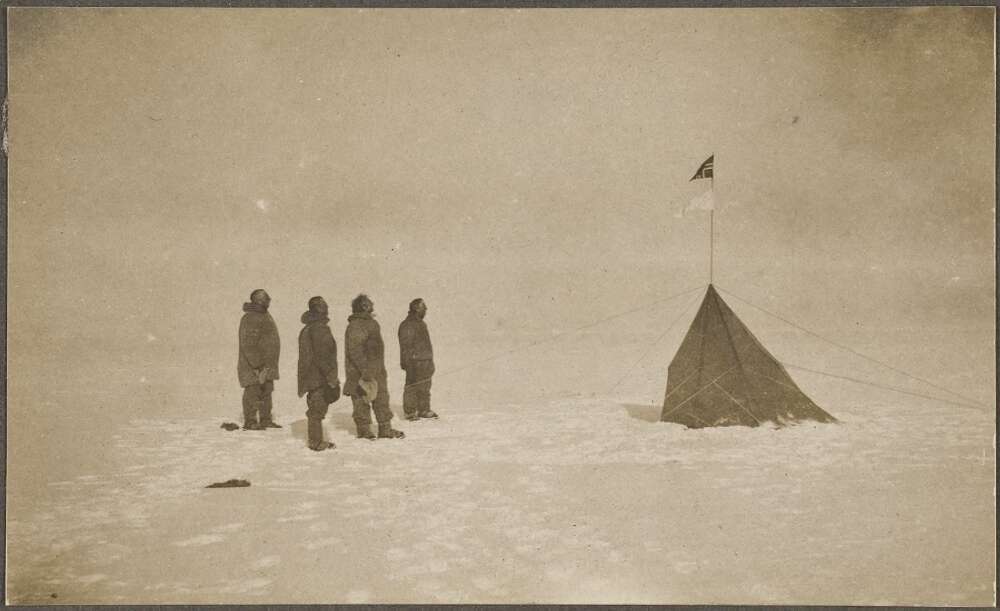This is a fine biography of Roald Amundsen, a Norwegian polar explorer (b. 1872) who won several trophies in the heroic age of polar exploration, including the famed race to the south Pole in 1912, the first to navigate the Northwest passage, and the first to cross the Arctic by air.
Amundsen learned a great deal from some early failures. He and his brother undertook a skiing expedition in Norway’s North for no particular reason but to prove their bravado; the journey nearly killed them both. Amundsen quickly realized the folly of slapdash preparation and he seldom made the same mistake twice. Later he joined a Belgian expedition as a junior officer (on a ship called the Belgica) and gained the dubious distinction of being the first crew to spend the winter in the Antarctic – “dubious” because the feat was entirely unintentional.
Loyal to his captain, but privately frustrated, Amundsen resolved that the best way to avoid another sloppily planned voyage was to become captain of his own ship. He spent a great deal of his life and energy securing funds for his voyages – this is a recurring theme in the tales of polar exploration – these voyages were immensely costly and not very profitable.
Amundsen crossed the Northwest passage, a spectacular feat that required him to overwinter in modern-day Nunavut. It was also notable because Amundsen deliberately set out to befriend and learn from local Inuit; this was in stark contrast to the markedly more arrogant British approach to polar exploration, wherein no authority was more highly exalted than the Royal Navy. Amundsen fostered two Inuit children, taking them with him back to Norway.
Amundsen’s most controversial move was to raise money for a North pole expedition, but reverse course when it was announced that Robert Peary had beat him to it. Peary almost certainly did not reach the Pole, but Amundsen and the rest of the world did not know this, so Amundsen changed course and headed South, to the chagrin of the National Geographic society in the UK, which was championing the voyage of the British Captain Scott. He sailed from the Madeira Islands to the Bay of Whales in Antarctica and masterfully plotted a course to the South Pole, borrowing liberally from Inuit ideas and traditions, most famously by using sled dogs and avoiding scurvy by eating fresh (not cooked) seal meat. Amundsen was practical to the core: when the dogs were no longer needed to haul sledges of supplies, he and his men ate them.
The British called foul play, which was obvious nonsense: they genuinely seemed to believe that they and their man Scott owned the rights to the South Pole. Scott perished near the South Pole a few weeks after Amundsen beat him to it.
Amundsen was brave but not stupid; an adroit fundraiser if not overly clever with money. He was the most practical and goal-oriented of the polar explorers. I find him absolutely admirable – he was loyal, intelligent and true to the maxim “measure twice, cut once”. Shackleton depended on feats of extraordinary braveness sustained by hope and pluck; Amundsen never needed to commit such acts of heroism because he depended instead on good planning and good sense. My type of explorer!
